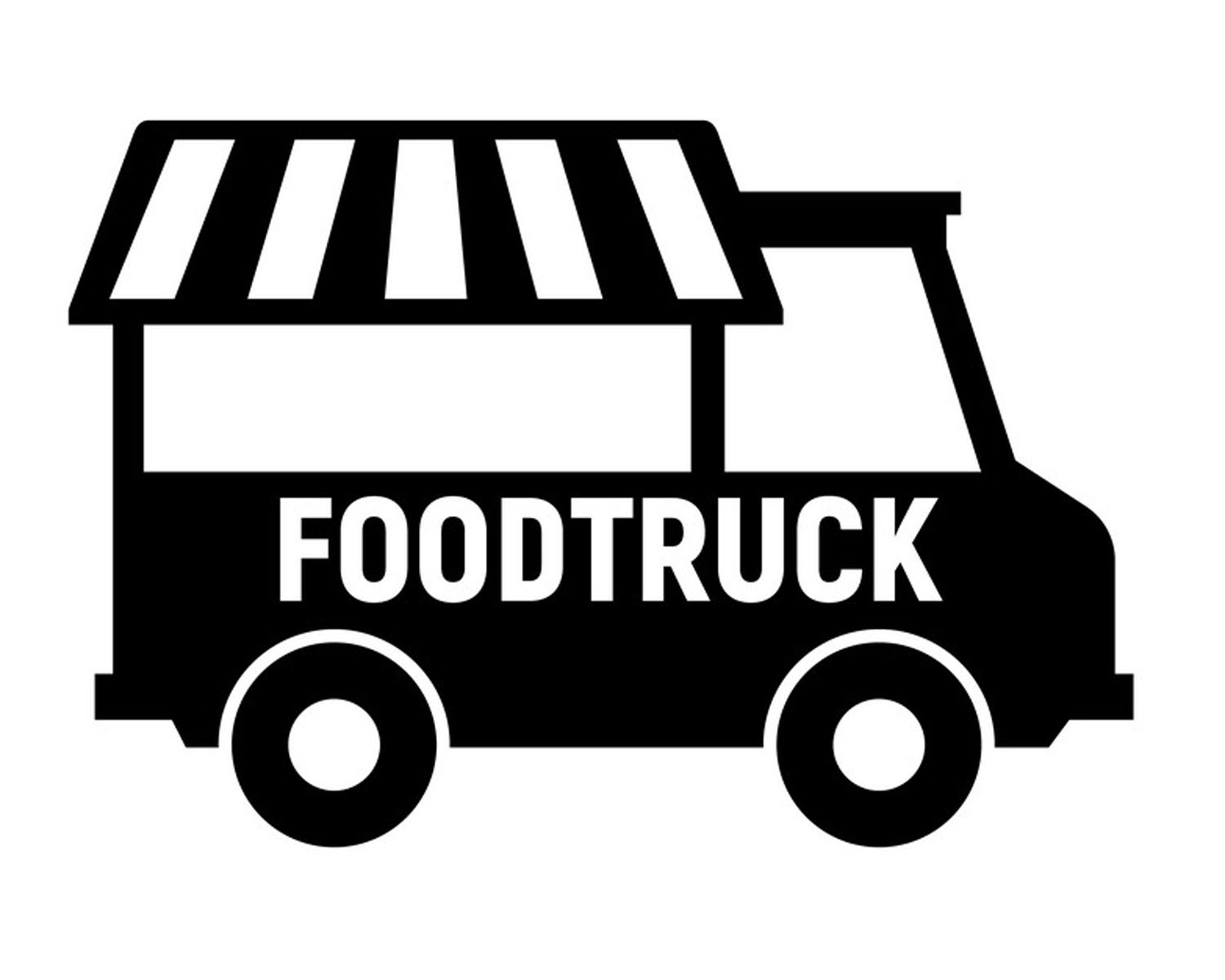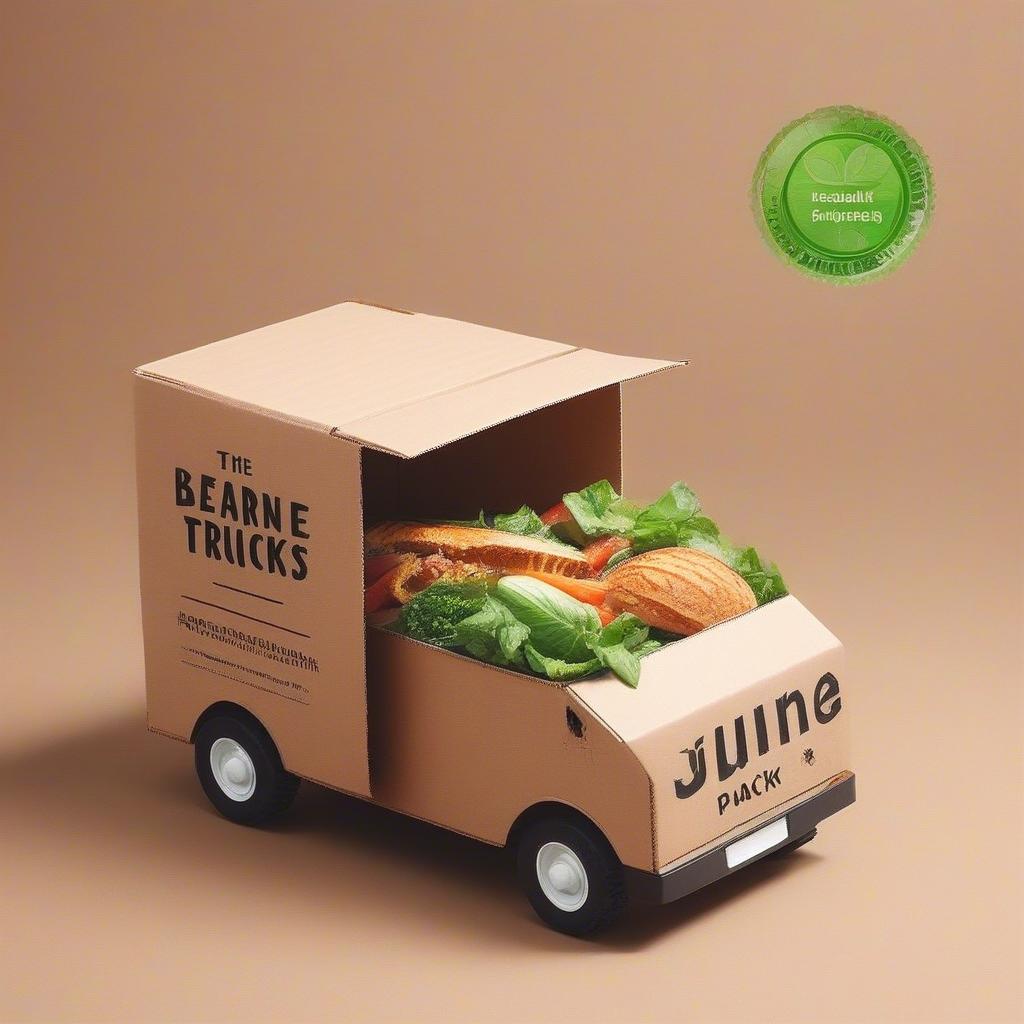Salvage Food Trucks For Sale: Your Blueprint for an Affordable Culinary Venture pickup.truckstrend.com
The dream of owning a food truck often sizzles with the promise of culinary freedom, flexible hours, and direct connection with customers. However, the initial investment can be a significant hurdle, with new custom-built food trucks easily costing upwards of $80,000 to $150,000 or more. This is where the often-overlooked, yet highly lucrative, world of Salvage Food Trucks For Sale enters the scene. Far from being mere junk, these vehicles represent an incredible opportunity for resourceful entrepreneurs to enter the mobile food industry at a fraction of the cost, transforming a damaged asset into a bustling culinary hub.
This comprehensive guide will demystify the process of acquiring and rehabilitating a salvage food truck, offering practical insights and actionable advice for anyone looking to turn a shrewd investment into a successful mobile eatery.
Salvage Food Trucks For Sale: Your Blueprint for an Affordable Culinary Venture
What Exactly is a Salvage Food Truck?
A "salvage food truck" refers to a vehicle that has sustained significant damage, often due to an accident, flood, fire, vandalism, or other major incidents. An insurance company has deemed the cost of repairing the vehicle to be greater than its actual cash value (ACV), leading them to declare it a "total loss" and issue a salvage title.
It’s crucial to understand that a salvage title does not automatically mean the truck is irreparable or useless. In many cases, the damage might be cosmetic, structural but repairable, or limited to specific components like the engine or kitchen equipment. The "total loss" declaration is an economic decision by the insurer, not necessarily an assessment of the truck’s ultimate viability. Once repaired to a roadworthy and safe condition, a salvage title can often be converted into a "rebuilt" or "reconstructed" title, allowing the vehicle to be legally registered and operated.
The Allure of Salvage: Why Consider One?
The decision to invest in Salvage Food Trucks For Sale is often driven by several compelling advantages:
- Significant Cost Savings: This is by far the biggest draw. A salvage food truck can be purchased for a fraction of the price of a comparable used or new truck. This drastically lowers the barrier to entry for aspiring food truck owners, freeing up capital for other essential startup costs like inventory, marketing, and permits.
- Customization Potential: Since the truck likely needs repairs, you have a blank canvas to design and outfit the interior exactly to your specifications. Instead of adapting to an existing layout, you can create an optimized workflow, choose specific equipment, and brand the truck from the ground up, reflecting your unique culinary vision.
- Eco-Friendliness and Sustainability: Giving a salvage truck a new lease on life is an act of recycling. You’re reducing waste and extending the lifespan of a valuable asset, contributing to a more sustainable business model.
- Learning and Skill Development: For those with mechanical aptitude or a willingness to learn, restoring a salvage truck can be an incredibly rewarding hands-on project. It provides invaluable insight into the mechanics and systems of your future business asset.
- Higher ROI Potential: With a lower initial investment, the potential for a quicker return on investment (ROI) is significantly higher, allowing you to reach profitability faster.

Navigating the Purchase: Where to Find Salvage Food Trucks

Finding Salvage Food Trucks For Sale requires a bit of savvy and knowing where to look. It’s not as straightforward as browsing a new car lot, but the opportunities are plentiful:
- Online Salvage Auctions: Websites like Copart, IAAI (Insurance Auto Auctions), and other specialized vehicle auction sites are primary sources. These platforms list thousands of salvage vehicles, including commercial trucks that can be converted or already partially outfitted food trucks. You’ll need to register and understand their bidding process.
- Salvage Yards and Auto Recyclers: Local salvage yards often have a rotating inventory of damaged vehicles. While they might not explicitly advertise "food trucks," you might find suitable chassis or even partially equipped units that fit your needs.
- Specialized Dealers/Brokers: Some businesses specialize in buying salvage vehicles, repairing them, and reselling them with rebuilt titles. While their prices will be higher than direct auction, they offer a turn-key solution and often come with a warranty on their repairs.
- Government and Police Auctions: Seized or surplus vehicles, sometimes including commercial trucks, can appear at these auctions.
- Direct from Insurance Companies: Occasionally, insurance companies might liquidate their inventory of total loss vehicles directly, though this is less common for individual buyers.
- Online Marketplaces: Craigslist, Facebook Marketplace, and other general classified sites can sometimes list salvage or "project" food trucks from private sellers. Exercise extreme caution and always conduct thorough due diligence when using these platforms.

The Inspection Imperative: What to Look For
Never buy a salvage food truck sight unseen. A thorough inspection is paramount to understanding the true extent of the damage and estimating repair costs. If you’re not mechanically inclined, hire a professional inspector specializing in commercial vehicles.
- Structural Integrity: Check the frame for bends, twists, or significant rust. Frame damage can be costly and sometimes impossible to repair safely.
- Engine and Transmission: Are there obvious signs of damage, fluid leaks, or missing components? A non-running engine can indicate serious issues.
- Kitchen Equipment: Assess the condition of all appliances (grill, fryer, refrigerator, sink, hood system). Are they salvageable, or will they need replacement? Look for fire or water damage.
- Electrical and Plumbing Systems: These are critical for a food truck. Check for damaged wiring, corroded pipes, and the condition of the water tanks and pump.
- Rust and Corrosion: Especially important in flood-damaged vehicles. Rust can compromise structural integrity and be difficult to fully eradicate.
- Flood Damage Indicators: Look for water lines, mud, musty odors, rust on interior metal, and corrosion on electrical components. Flood damage often leads to long-term electrical and mold issues.
- Title Clarity: Ensure the salvage title is legitimate and there are no liens or other encumbrances on the vehicle. Understand the specific reason for the salvage designation.
Budgeting for Reality: Beyond the Purchase Price
The purchase price of a salvage food truck is just the beginning. A realistic budget must account for all subsequent expenses:
- Purchase Price: The auction or sale price of the salvage truck.
- Auction Fees/Buyer’s Premium: Online auctions charge fees on top of the winning bid.
- Transportation Costs: Getting the non-running or damaged truck from the auction yard to your repair location.
- Repair Costs: This is the biggest variable. It includes parts (new or used) and labor (if you’re not doing it yourself). Get multiple estimates.
- Licensing and Permits: State and local fees for vehicle registration, health department permits, and business licenses.
- Insurance: You’ll need specialized commercial vehicle insurance, and some insurers might be hesitant or charge more for rebuilt title vehicles.
- Re-titling Fees: The cost to convert the salvage title to a rebuilt title after repairs.
- Upgrades and Customization: Costs for painting, wrapping, interior finishes, and any additional equipment you want to add.
- Contingency Fund: Always budget an extra 15-20% for unforeseen issues that inevitably arise during restoration.
The Restoration Journey: From Salvage to Sizzle
The path from a damaged shell to a fully operational food truck is a multi-stage process:
- Damage Assessment & Planning: Based on your inspection, create a detailed repair plan. Prioritize structural and mechanical repairs first, then focus on the kitchen build-out.
- Sourcing Parts: Look for used parts at salvage yards, online marketplaces, or new aftermarket parts. Balance cost with quality and availability.
- Mechanical Repairs: Address engine, transmission, suspension, brakes, and steering issues. This often requires professional expertise.
- Structural & Body Work: Repair frame damage, body panels, and rust. This is crucial for safety and aesthetics.
- Electrical & Plumbing Systems: Install or repair wiring, fuse boxes, water tanks, pumps, water heaters, and drainage systems to meet health codes.
- Kitchen Equipment Installation: Install and secure all cooking, refrigeration, and prep equipment. Ensure proper ventilation (hood system) and fire suppression.
- Interior Finishing: Install flooring, wall coverings (often stainless steel or FRP panels for hygiene), countertops, and shelving.
- Exterior Finishing: Paint, wrap, or decal the truck to reflect your brand.
Decide early whether you’ll undertake the repairs yourself (DIY) or hire professionals. DIY can save money but requires significant time, skill, and tools. Professional repairs offer speed and expertise but come at a higher cost. A hybrid approach, where you do some work and outsource complex tasks, is often the most practical.
Legal & Regulatory Hurdles: Getting Your Salvage Truck on the Road
This is arguably the most critical phase. A repaired salvage truck cannot simply be driven away.
- The Rebuilt Title Process: Each state has specific requirements for converting a salvage title to a rebuilt title. This usually involves:
- Submitting proof of repairs (receipts for parts, labor).
- A comprehensive inspection by a state-certified mechanic or law enforcement officer to verify all repairs meet safety standards and that the vehicle’s components match its VIN.
- Payment of re-titling fees.
- Health Department Regulations: Food trucks must comply with stringent local and state health codes. This includes requirements for sinks (handwash, three-compartment), hot and cold running water, proper ventilation, waste disposal, refrigeration, and food safety practices. Many jurisdictions require a pre-operational inspection of the truck before a permit is issued.
- Local Zoning and Permitting: Understand where you can legally operate your food truck (e.g., parking restrictions, street vending permits, event permits).
- Commercial Vehicle Insurance: Obtain appropriate commercial liability and property insurance for your food truck business.
Potential Pitfalls & How to Avoid Them
While the benefits are significant, navigating Salvage Food Trucks For Sale comes with its own set of challenges:
- Hidden Damage: The biggest risk. An initial inspection might miss underlying structural, electrical, or mechanical issues. Mitigation: Thorough pre-purchase inspection by an expert.
- Underestimating Repair Costs: It’s easy to get carried away by a low purchase price and forget the extensive work required. Mitigation: Get multiple detailed repair quotes, budget a contingency fund.
- Title Issues: Unclear titles, undisclosed liens, or difficulty converting to a rebuilt title. Mitigation: Verify the title history rigorously, consult your state’s DMV.
- Lack of Expertise: Attempting complex repairs without the necessary skills can lead to unsafe conditions or costly mistakes. Mitigation: Know your limits, hire professionals for critical tasks.
- Time Commitment: Restoration takes time, often more than anticipated. This delays your entry into the market. Mitigation: Create a realistic timeline, factor in potential delays.
Estimated Cost Breakdown for Salvage Food Trucks
It’s impossible to give exact prices for Salvage Food Trucks For Sale due to the vast variations in damage, make, model, and year. However, this table provides estimated ranges to help you budget:
| Component/Condition | Estimated Salvage Purchase Price (USD) | Estimated Repair & Renovation Costs (USD) | Estimated Total Investment (USD) | Key Considerations |
|---|---|---|---|---|
| Minor Cosmetic Damage | $5,000 – $15,000 | $3,000 – $10,000 | $8,000 – $25,000 | Dents, scratches, minor bodywork. Low mechanical risk. Ideal for first-timers. |
| Moderate Accident Damage | $3,000 – $10,000 | $10,000 – $30,000 | $13,000 – $40,000 | Front/rear end collision, some frame work. Engine/transmission likely okay. Requires professional body shop. |
| Mechanical Failure (Engine/Trans) | $2,000 – $8,000 | $8,000 – $20,000 | $10,000 – $28,000 | Non-running, but body/kitchen largely intact. Engine swap or rebuild. Ensure no hidden flood damage. |
| Fire Damage (Minor/Contained) | $1,000 – $5,000 | $15,000 – $40,000+ | $16,000 – $45,000+ | Localized kitchen fire. Extensive cleanup, equipment replacement, electrical overhaul. Higher health code scrutiny. |
| Flood Damage (Low/Medium) | $500 – $3,000 | $20,000 – $50,000+ | $20,500 – $53,000+ | Water lines below dashboard. Major electrical, interior, rust remediation. Highest risk, often not recommended. |
| Vandalism/Theft Recovery | $2,000 – $10,000 | $5,000 – $25,000 | $7,000 – $35,000 | Interior/exterior damage, missing components. Varies widely. |
| Partially Equipped (Any Damage) | $5,000 – $20,000 | $10,000 – $35,000 | $15,000 – $55,000 | Base vehicle plus some salvageable kitchen gear. Good if you plan to upgrade anyway. |
| Professional Restoration/Rebuilt Title Resale | N/A (Included in final price) | N/A (Included in final price) | $30,000 – $70,000+ | Purchased ready-to-operate with rebuilt title. Higher upfront cost, less hassle. |
Note: These are estimates. Actual costs will vary significantly based on vehicle type, extent of damage, cost of parts, labor rates, and your ability to do DIY work. Always add a 15-20% contingency fund.
Frequently Asked Questions (FAQ) about Salvage Food Trucks
Q1: What is a salvage title, and why is it issued?
A1: A salvage title is issued when an insurance company declares a vehicle a "total loss" because the estimated cost of repairs exceeds a certain percentage (often 70-100%) of its pre-damage market value. This doesn’t mean it’s irreparable, just that it’s uneconomical for the insurer to fix.
Q2: Can I get insurance on a salvage food truck?
A2: Once the truck has been repaired and issued a "rebuilt" or "reconstructed" title, you can typically get insurance. However, some insurance companies may be hesitant or charge higher premiums due to the vehicle’s history. Shop around and be transparent about its past.
Q3: How long does it take to repair a salvage food truck?
A3: This depends entirely on the extent of the damage, your budget, whether you do DIY work or hire professionals, and the availability of parts. Minor cosmetic repairs could take a few weeks, while major mechanical and structural overhauls, combined with a full kitchen build-out, could take several months to a year or more.
Q4: Is it hard to get a rebuilt title?
A4: The process varies by state but generally involves a thorough inspection by the DMV or a state-approved mechanic to ensure the vehicle is safe and meets all roadworthy standards. You’ll need to provide receipts for all major parts and repairs. It requires diligence and adherence to regulations, but it’s certainly achievable.
Q5: Are salvage food trucks reliable after repair?
A5: A properly repaired and maintained salvage food truck can be just as reliable as any other used vehicle. The key is the quality of the repairs. Cutting corners can lead to ongoing issues, while investing in proper restoration can result in a dependable asset.
Q6: Can I finance a salvage food truck?
A6: Financing a vehicle with a salvage title is extremely difficult, if not impossible, as lenders see them as high-risk. You’ll likely need to pay cash for the initial purchase. Once the vehicle has a rebuilt title, traditional commercial vehicle financing might become an option, but it’s still less common than for clean-title vehicles.
Q7: What’s the best way to find a reputable repair shop for a salvage food truck?
A7: Look for shops specializing in commercial vehicles or heavy-duty trucks. Get recommendations, check online reviews, and ensure they have experience with frame repair, engine work, and potentially even custom fabrication. Always get multiple detailed quotes and a written contract.
Conclusion
The journey into the mobile food industry can be an exhilarating one, and for the savvy entrepreneur, Salvage Food Trucks For Sale present an exciting, cost-effective pathway. While it demands meticulous research, a realistic budget, and a willingness to navigate the complexities of restoration and regulation, the rewards can be substantial. By transforming a seemingly lost cause into a vibrant culinary machine, you not only save significant capital but also gain a deeper understanding of your most crucial business asset. With careful planning and diligent execution, a salvage food truck can be the perfect foundation for your sizzling success story on wheels.



